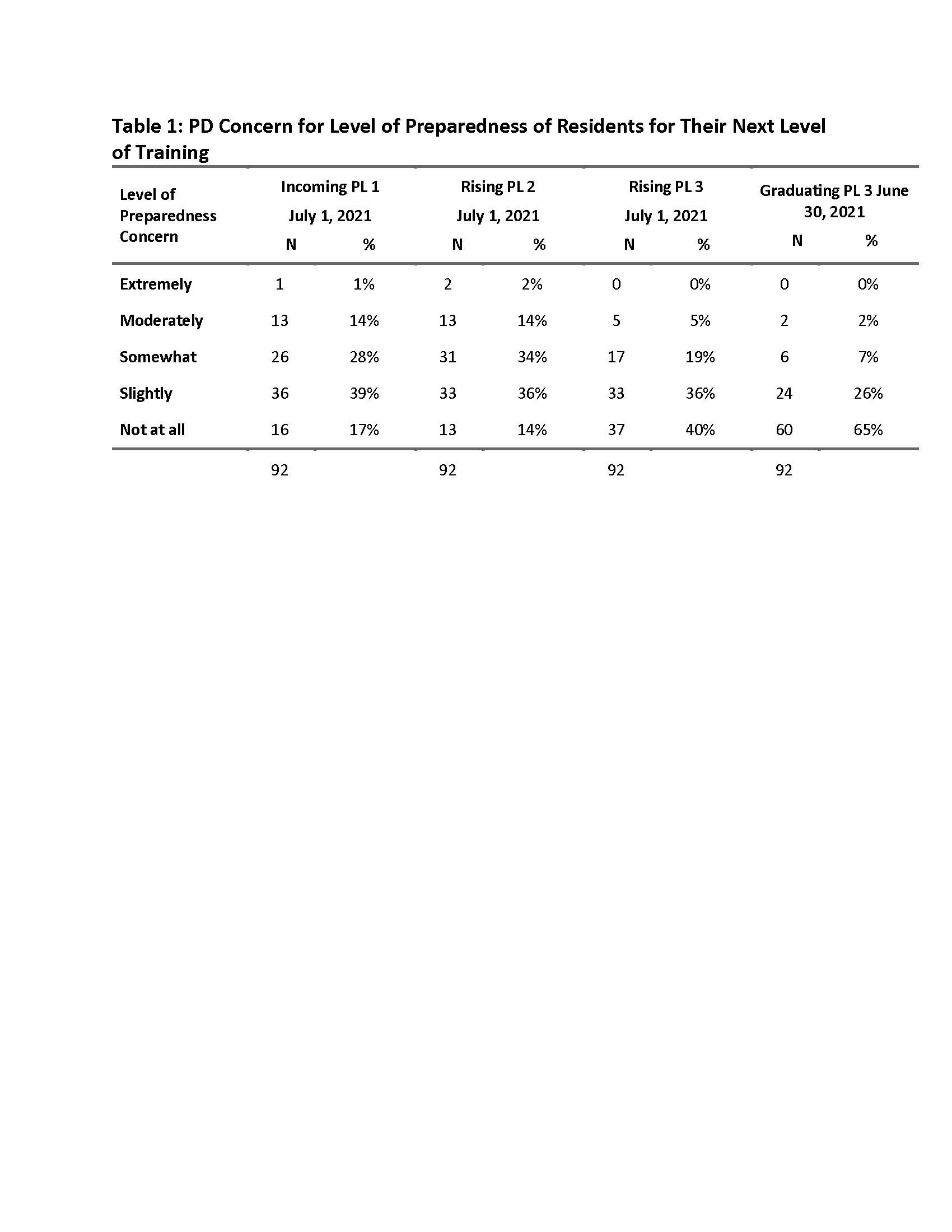Medical Education: Resident
Medical Education 13: Resident 4
485 - The Effect of the COVID-19 Pandemic on Pediatric Resident Education 1-Year Later
Publication Number: 485.421

Monique Naifeh, MD MPH (she/her/hers)
Associate Professor
University of Oklahoma Health Sciences Center
Oklahoma City, Oklahoma, United States
Presenting Author(s)
Background:
The COVID-19 pandemic disrupted healthcare delivery and pediatric residency education.
Objective: Evaluate the continued impact of the COVID-19 pandemic on resident preparation for more senior roles and wellness in pediatric residency programs.
Design/Methods: We conducted a national survey of pediatric residency program directors (PDs) from May to July, 2020 and a follow-up survey from June to September, 2021. Data analysis included descriptive statistics, Х2 and Wilcox rank sum tests.
Results:
Response rate was 55% for the 2020 survey and 46% for the 2021 survey; 35% (69/199) of PDs responded to both surveys. In 2021, PDs reported the COVID-19 pandemic negatively/very negatively affected overall educational experience (71%; 65/92), including inpatient education (77%), outpatient education (61%), resident preparation for more senior roles (76%), and resident wellness (88%). PDs reported being more concerned about preparedness of incoming interns (44%) and rising second years (50%) compared to rising (24%) and graduating third year (9%) residents (p< 0.0001) (Table 1). PDs reported COVID-19 pandemic more negatively impacted their program’s ability to develop their residents’ competence in patient care (60%, P< 0.0001) compared to systems-based practice (33%), medical knowledge (28%), practice-based learning and improvement (22%), interpersonal communication skills (17%), and professionalism (10%) (Figure 1).
When analysis was restricted to programs who responded to both surveys, compared to 2020, in 2021, PDs reported an increased negative/very negative impact on educational conferences (33% vs. 64%, p< 0.003), resident preparation for more senior roles (41% vs. 75% p< 0.0001), and resident wellness (54% vs. 84% p< 0.005) (Figure 2). Outpatient clinical education (93% vs. 62%, p=0.003) was less negatively affected and inpatient clinical education (81% vs. 78%) was stable.
Conclusion(s):
Resident preparation for more senior roles and resident wellness were more negatively impacted during our 2021 survey despite improvement reported in outpatient clinical education and a similar impact reported for inpatient clinical education. It is possible that the persistence of the negative impact for more than a year resulted in worsening resident preparation for more senior roles or that the impact on resident preparation was more apparent after a year. Worsening trainee wellness is concerning and likely multifactorial. Robust support of trainees will be vital to help maintain wellness.
.jpg)
.jpg)
